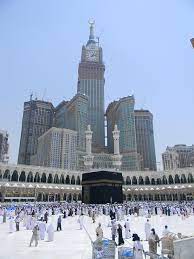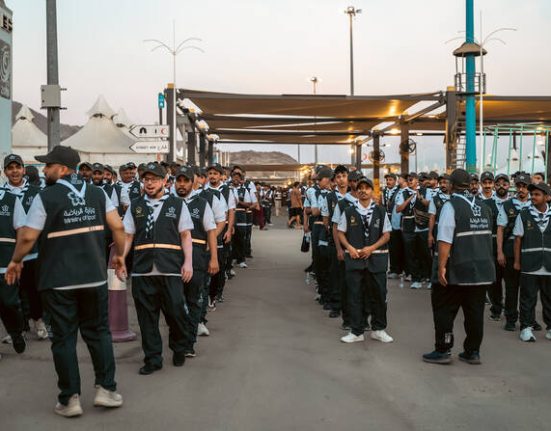As the 2025 Hajj season begins to gather momentum, Saudi Arabia has welcomed the first set of international pilgrims from various countries, even as authorities intensify enforcement of regulations guiding the sacred exercise. In a twin development on Tuesday, April 29, the Kingdom simultaneously received several flights conveying pilgrims and reiterated its zero-tolerance policy on performing Hajj without an official permit.
The Saudi Ministry of Interior, in a strongly worded statement, warned that from April 29 to June 10, 2025, individuals found attempting to perform Hajj without the mandatory permit — including those on any form of visit visa — will face immediate penalties. Such offenders will be fined up to 20,000 Saudi Riyals, which is approximately $5,331. The policy also covers those who gain unauthorised entry into Makkah and other sacred locations during the restricted period. The government has clarified that this regulation is part of broader efforts to ensure security, orderliness, and the well-being of legitimate pilgrims.
Furthermore, anyone found facilitating or abetting the illegal entry or presence of pilgrims without valid permits will face stiffer penalties, with fines reaching up to SR100,000. These include individuals who apply for visit visas on behalf of others intending to perform Hajj unlawfully, or those who provide any form of assistance, including accommodation or transportation. Repeat offences or involvement of multiple individuals may lead to a multiplication of the fines. In more severe cases, transporters who use their vehicles to convey unauthorised persons to the holy sites may have their vehicles confiscated after court approval.
The Ministry also confirmed that illegal residents or overstayers caught attempting to participate in Hajj without proper documentation will face deportation and a 10-year ban from re-entry into Saudi Arabia. Authorities emphasized that these measures are not only regulatory but are also in line with Islamic principles that seek to reduce hardship and maintain order during the pilgrimage.
While the enforcement mechanisms are being tightened, Saudi Arabia has officially welcomed the first batch of Hajj 2025 pilgrims, signaling the beginning of a season that will witness millions of Muslims fulfilling one of the pillars of Islam. On Tuesday, flights from countries such as Bangladesh, Pakistan, India, and Malaysia touched down at the Kingdom’s two primary Hajj entry points — King Abdulaziz International Airport in Jeddah and Prince Mohammed bin Abdulaziz International Airport in Madinah.
The flight from Dhaka, Bangladesh, which landed in Jeddah with 396 pilgrims, was received by the Saudi Minister of Transport and Logistics, Engineer Saleh Al-Jasser. He confirmed that six major airports across the Kingdom have been designated to handle this year’s pilgrimage traffic. These include airports in Jeddah, Madinah, Riyadh, Dammam, Yanbu, and Taif. The government has intensified efforts to ensure that the arrivals are processed efficiently and comfortably, leveraging advanced logistics and technology.
A significant number of the arrivals were processed through the acclaimed “Makkah Route” initiative. Pilgrims from Islamabad, Hyderabad (India), and Kuala Lumpur arrived in Madinah under the scheme, which is designed to simplify the travel experience by completing visa and immigration procedures at the airport of origin. Upon arrival in Saudi Arabia, such pilgrims are taken directly to their accommodations, with their luggage transported separately in a streamlined system facilitated by partner agencies.
Meanwhile, the General Secretariat of the Council of Senior Scholars has echoed its earlier fatwa affirming that performing Hajj without a valid permit is not only illegal but a sin under Islamic law. The Council, through its Secretary General Sheikh Fahd Al-Majed, emphasized that adherence to the permit policy aligns with core Shariah principles. He highlighted that the aim is not to make the pilgrimage difficult but to ensure it is performed in peace, safety, and dignity.
Sheikh Al-Majed noted that the permit requirement enables the Kingdom’s authorities to plan comprehensively for the Hajj season — including matters related to security, healthcare, accommodation, and food — based on the official number of pilgrims. When pilgrims comply with the official process, it improves service delivery, facilitates crowd control, and supports the broader religious objective of easing hardship for the worshippers.
As the pilgrimage season unfolds, Saudi Arabia has sent a clear message: the door to Hajj is open, but must be entered through legitimate and regulated means. With enhanced logistics and strict enforcement of rules, the Kingdom is reinforcing its commitment to a safe, dignified, and spiritually fulfilling Hajj for all.







